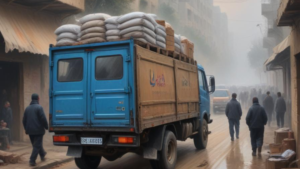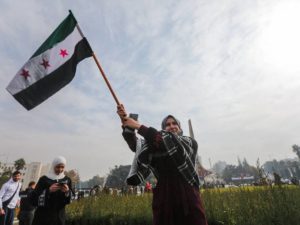1 – A recent meeting of UAI’s International Executive Committee (IEC) concluded that we should urgently launch an international campaign around Article 1, that is common to the four 1949 Geneva Conventions – widely known as Common Article 1 (CA1) – to challenge the harmful practices of warring parties, namely government forces and non-state armed actors, as well as their sponsors, in today’s war zones. Today, the 70th anniversary of the Geneva Conventions, is a reminder that we all have a role to play in safeguarding the lives of civilians and challenging the brutality of contemporary warfare that endangers the lives of millions and puts in question what it means to be human.
2 – The four 1949 Geneva Conventions, adopted after World War II, have been universally ratified. This means that all UN Member States and UN observers are obliged to respect and ensure respect for these Conventions in all circumstances. This, in effect, means that States that are not belligerents in a given armed conflict are obliged to:
(a) refrain from encouraging violations and
(b) take proactive measures to ensure respect for International Humanitarian Law (IHL).
CA1 responsibilities apply in international armed conflict and non-international armed conflict settings and relate to all warring parties. In practice, this means that all countries – including those, for example, that are not involved in providing weapons to a belligerent – are duty bound to ensure that these treaties are not violated. CA1 responsibilities are also relevant in times of peace. See attached paper that sets out the essence and utility of Common Article 1 in a straightforward fashion.
3 – The IEC is interested in receiving your feedback and suggestions on the potential use of CA1 in your location. Action on CA1 will likely work to greatest effect when it takes account of local and national political and civil society realities including potential for collaboration. In addition, diverse factors will likely shape the perspectives of citizens, academia, civil society groups and others on the nature of contemporary armed conflicts and their consequences for civilians including those who are displaced internally or obliged to flee elsewhere in search of refuge.
If you are interested in joining with other UAI supporters in a virtual group to take this issue forward, please let us know. And if you have any questions or comments on this issue, please do not hesitate to be in touch.
To know more about CA1 read our note by clicking here.
Photo caption: Mosul. View of the west bank after the war ©ICRC











